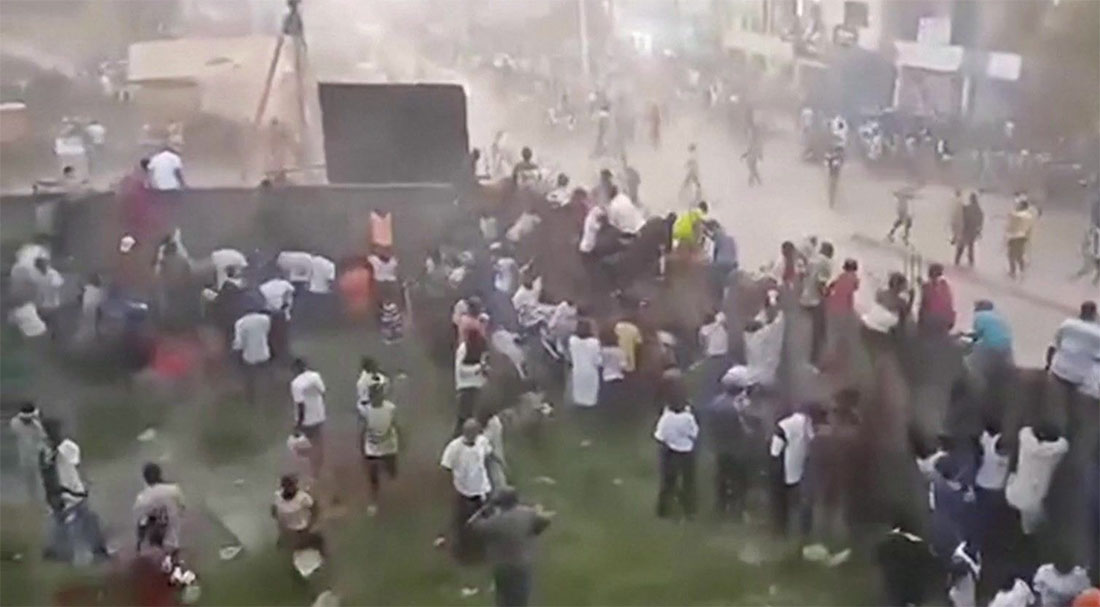Photo Credit: Getty Images
A football match in Guinea's southeastern city of Nzérékoré turned into a catastrophic human tragedy, resulting in the deaths of 56 people, including numerous children. The event, ostensibly a tournament honoring military leader Mamady Doumbouya, quickly spiraled into chaos after a controversial refereeing decision.
Eyewitness accounts reveal the incident erupted when the referee expelled two players from the visiting team, Labé, and awarded a contentious penalty kick. The decision triggered intense fan reactions, with supporters hurling stones and prompting police to respond with tear gas. The ensuing panic created a deadly stampede that overwhelmed stadium exits and trapped vulnerable spectators.
Local journalist Paul Sakouvogi described the aftermath as surreal, with police restricting hospital access and positioning six pickup trucks to control movement. Medical personnel reported harrowing scenes of bodies lined up in hallways and morgues at full capacity. The graphic images circulating online depict the human cost of this preventable disaster.
The incident highlights deeper systemic issues within Guinea's current political landscape. The tournament, organized to celebrate Doumbouya's leadership, was criticized by the opposition as a calculated attempt to build political support. The National Alliance for Change and Democracy explicitly accused authorities of exploiting public events to bolster the military junta's legitimacy.
Human Rights Watch has consistently criticized the military regime's governance, noting persistent challenges to democratic restoration. The organization's recent report documented excessive force against protesters and ongoing restrictions on civil liberties. The stadium tragedy represents another manifestation of the country's fragile political environment.
Football authorities expressed profound grief, with Feguifoot describing the event as a moment of "intense pain." The organization emphasized that football should unite communities, not generate tragedy. This sentiment resonates deeply in a context where sporting events often serve as pressure valves for complex social tensions.
Prime Minister Oury Bah promised a comprehensive investigation and full medical support for survivors. The government's commitment to transparency will be critically examined in the coming weeks, as public scrutiny intensifies and demands for accountability grow.
The tragedy also underscores broader safety concerns in African sports infrastructure. Recent decades have witnessed multiple stadium disasters, prompting ongoing efforts by the Confederation of African Football and FIFA to address persistent overcrowding and security vulnerabilities.


